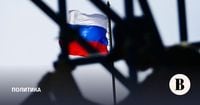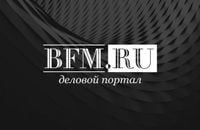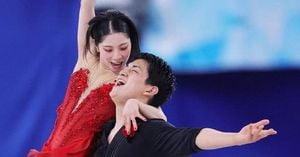Ukrainian President Volodymyr Zelensky has imposed personal sanctions against a group of prominent Russian artists and cultural figures, a move that has sparked a wave of reactions from those affected. The sanctions, which took effect on April 18, 2025, include 20 individuals, among them musicians, actors, and sports figures, such as Yaroslav Dronov, known as SHAMAN, and singer Nikita Dzhigurda.
Nikita Dzhigurda expressed his pride in being included on the sanctions list, stating that he and his colleagues represent a threat to what he termed the "Nazi regime of wretched Zelensky" through their creative work and civic positions. He recited a poem in response to the sanctions, comparing Europe to a prostitute and asserting that the adversity faced by the Russian language in Ukraine would not cease until the authorities leave it alone. "The great and mighty will endure forever," he declared, emphasizing his commitment to the Russian language.
Yaroslav Dronov, in a more lighthearted response, celebrated the sanctions with a simple exclamation of joy, saying, "Ura!" According to TASS, Dronov's reaction reflects a sentiment shared among many of the sanctioned artists, who perceive their inclusion in the list as an honorary mark rather than a punishment.
Other artists also responded with a mix of sarcasm and defiance. Yuri Kuklachov, the head of the Cat Theater, invited Zelensky to his upcoming show, urging him to remember the "real human values that have been forgotten." Kuklachov noted that his recent tour, which allowed over ten thousand veterans and their families to attend performances for free, might have contributed to the sanctions.
Singer Alexander Rozenbaum took a sarcastic jab at Zelensky, remarking that it was nice to see the president "reboot" after years of silence since the 2014 events. He humorously pointed out that the current sanctions list includes a mix of individuals, particularly highlighting Kuklachov's cats. Rozenbaum's comments were emblematic of the broader attitude among the sanctioned artists, who often downplayed the significance of the sanctions.
Garik Sukachev, another musician affected by the sanctions, expressed satisfaction at being in the company of "decent people" on the sanctions list. This sentiment was echoed by other artists who viewed the sanctions as a confirmation of their artistic and civic stances rather than a deterrent.
Denis Lebedev, a former world boxing champion, also dismissed the sanctions, stating, "For me, life remains the same," while expressing hope for a fundamental change in the near future. This perspective reflects a broader sentiment among the sanctioned individuals, who often regard the punitive measures as politically motivated rather than reflective of their artistic contributions.
Maria Zakharova, the official representative of the Russian Foreign Ministry, weighed in on the situation through her Telegram channel, describing Zelensky as a "bloody clown" who has imposed sanctions against a beloved clown who brings joy to children. Her comments, along with the reactions from the artists, illustrate the ongoing cultural and political tensions between Russia and Ukraine.
The sanctions imposed by Zelensky are part of a broader strategy to address perceived threats from Russian cultural figures who have publicly supported the ongoing conflict in Ukraine. This move follows a pattern of increasing restrictions on individuals viewed as sympathetic to the Russian government or its policies.
In total, the sanctions list includes a diverse group of cultural figures, from actors like Oscar Kuchera and Alexander Pankratov-Cherny to sports figures such as fencer Sofia Velikaya and skier Elena Vyalbe. Each of these individuals has faced scrutiny for their public positions or actions that have been interpreted as supportive of Russian policies.
As the situation continues to evolve, the responses from these artists highlight the complexities of cultural identity and political allegiance in a time of conflict. Many of those sanctioned are not only prominent figures in their fields but also vocal critics of the Ukrainian government, which adds layers to the ongoing discourse surrounding the sanctions.
The reactions from the sanctioned individuals illustrate a resilience in the face of political adversity. Many view their inclusion on the sanctions list as a badge of honor, reinforcing their commitment to their artistic and national identities. This sentiment is particularly poignant given the context of the ongoing conflict, where cultural expression often intersects with political ideology.
As the cultural landscape continues to shift in response to geopolitical tensions, the implications of these sanctions extend beyond the individuals directly affected. They serve as a reminder of the power of art and culture in shaping national narratives and identity.
In conclusion, the sanctions imposed by President Zelensky against Russian cultural figures have ignited a spirited response from those affected, revealing a complex interplay of pride, defiance, and political commentary. The ongoing dialogue surrounding these sanctions underscores the enduring significance of cultural expression in times of conflict.








